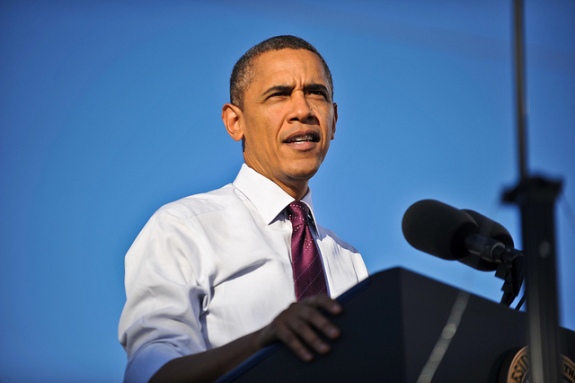Immigration hardliners were predictably quick to criticize President Obama’s recent announcement that DHS will use discretion to halt the deportations of eligible immigrant youth. They wasted no time hurling some base-stirring claims—“administrative amnesty,” “end-runs around Congress,” “executive fiat.” However, while folks are free to criticize the President, they should at least strive for accuracy. The President did not create a new law, sign an executive order or grant anyone citizenship or amnesty, he merely directed DHS to exercise discretion to grant deferred action to qualified immigrant youth—an action that is well within his power as President.
Putting aside ridiculous critiques from fringe groups (think “dictator, tyranny, treason”), others have mischaracterized Obama’s administration’s discretion directive as an “executive order” or “new law.” For example, in a recent interview, Florida Senator Marco Rubio said:
“My biggest fear is that by doing it in this way, by doing it by executive order, by ignoring the Congress, it’s going to make it very hard to get something done that is permanent and that’s really where the solution lies on this issue.”
This is not the case. As previously reported, deferred action is one of several forms of discretion that allows an individual to remain temporarily in the United States. It does not confer any kind of permanent residence, nor is it an amnesty. Under DHS’s June 15 memo, deferred action would be granted to eligible immigrant youth for two year increments, include work authorization, and would be renewable.
In fact, the use of discretion—which the Supreme Court has made clear agencies can use—in the immigration context is exercised across the board—by agencies, investigators, police, attorneys and judges. According to immigration experts, the use of discretion is “not contrary to current law, but rather a matter of the extension and application of current law to contemporary national needs, values and priorities.”
Other common forms of discretionary protection from removal include:
- Deferred Enforced Departure, exercised by President George H.W. Bush for Chinese nationals after Tiananmen Square
- Extended Voluntary Departure, extended to citizens of Poland Cuba, the Czechoslovakia, Chile, China, Iran, Nicaragua, and Vietnam (to name a few) in response to various periods of political upheaval and natural disasters
- Humanitarian Parole, granted to someone enter the U.S. temporarily due to a compelling emergency, like a woman who was separated from her husband and children because of paperwork lost by an embassy.
While restrictionists love to attack any administrative action as the executive branch over-reaching, the more likely reason is that criticizing the President allows them to avoid criticizing DREAM Act students. It’s much easier to say that the President did it the wrong way than to actually engage in the reasons, such as stonewalling on the DREAM Act in Congress, that led him to his decision. In this case, critics want to get the facts wrong to avoid the policy debate.
Photo by Intel Photos.
FILED UNDER: DACA, Deferred Action, Department of Homeland Security, Executive Branch, Janet Napolitano, prosecutorial discretion, undocumented immigration



